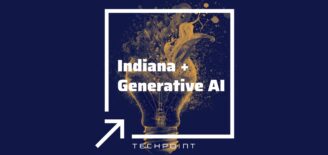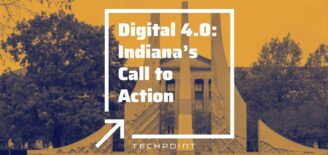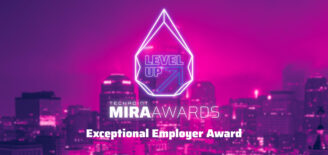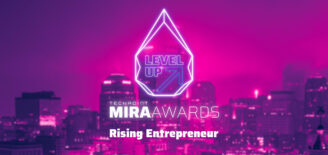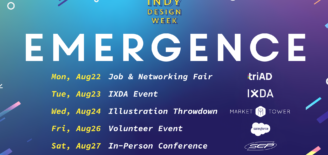Diversity is a topic we hear and read about daily. Whether it’s mentioned in the workplace, news, or social media, it’s a prevalent topic dominating the workplace and the rapidly growing Indiana tech scene. Do we truly know what it means, how to obtain it, and how to use it to create profitability?
For technology companies, an important component for diversity is a team who possesses a variety of talents and skill sets. Professional teams in the tech sector employ their diverse backgrounds and experiences to solve complex problems. Building this kind of a team, however, requires management to think through the aspects of their firms and how they can best fill whatever gaps may exist. But where can a manager begin when considering how to create a diverse team?
The key to an employer creating a diverse team in any environment boils down to three factors: Talent, Training, and Thought Leadership.
Talent
There is no doubt that Indiana has some of the most talented tech professionals in the country, hence the city of Indianapolis, Central Indiana region, and the state as a whole in some cases, making it to the top of numerous annual “Best of” and “Fastest Growing” lists. The Indy tech market has been noticed on a national scale, garnering attention from companies and venture capitalists alike. Funding has increased year-over-year, with over $105 million in publicly-announced investments and acquisitions in Q4 of 2017 alone.
Mark Muro of the Brookings Institute stated in U.S. News and World Report, “Indiana is delivering some of the most bottom up, regional economic development in high value industries like tech.” In other words, Indiana is creating organic jobs and revenue without the help of tech giants; we are creating a disruption in the industry nationally.

Indiana should be very proud of this! However, Muro also believes there are still challenges we face with respect to the larger, more established, and heavily funded tech communities, including the ability to “maintain and attract high quality digitally skilled workers.”
The current job market is robust: competition is high for talent, and retaining employees is a priority for most companies today. Top talent will always be in demand, and it’s in your best interest to treat hiring and retaining employees as a year-round critical business process.
What are some low-cost, high impact options that you can implement to retain talent? Try offering weekend “staycation” deals for top performers, support training and development internally, and allow flexible working arrangements.
These changes are easier to talk about than they are to implement, which is why TriNet started almost 30 years ago in Silicon Valley. Having seen everything from the dot-com boom and bust to the current state of the Valley, our mission is to participate in the growth of Indiana’s thriving tech hub and ensure it is compliant, attractive, and profitable.
Indiana’s first unicorn is out there right now. The only question is: Will it be you?
TriNet gives our customers the ability to attract and retain top talent by creating employee packages typically reserved for Fortune 500 companies. TriNet’s offerings goes beyond health and retirement services and include life insurance, auto and home policies, and commuter benefits. In our marketplace, employees can get exclusive discounts on travel, electronics, activities, and lifestyle products. These are all benefits that millennials are now thinking of when looking for career placement and security.
Training
With TechPoint’s Xtern program making waves across the nation in the most prestigious universities, eager millennials are looking for reasons to not only stay in Indiana, but relocate here. Techpoint’s Xtern program received over 1,500 applications in 2017 for 126 internship positions. The talent pool is full and technology professionals are ready to join the Indy tech scene.
So how do we harness young talent and create lethally skilled engineers? We train them.
Coming from a background in data center infrastructure where I worked with some of the nation’s largest data centers and IT departments, I realized how important it is to have a diverse group of engineers. While these tech teams were made up of specialists that led the group in infrastructure projects associated with security, VDI, VoIP, networking, and storage, the most successful teams were those that employed specialists while also training them to be generalists.
With tech companies leading Indiana’s job growth and economic development, there are opportunities to hire specialists who develop, maintain, and create new products. To truly maximize the investment made into attracting and hiring top talent, however, talent must be cross-trained to support other areas within firms, such as marketing, infrastructure management, professional services, and even pre-sales engineering.
As Indy’s startup ecosystem grows, young companies can leverage team members to support the company and Indy tech ecosystem in more areas than one. This will create a diverse talent pool within the state and ensure the highest profitability for economic development.
Thought Leadership
Training talented and skilled workers to create a diverse talent pool within your company is a culture commitment and a way of operating with a focus on long-term outcomes. Keeping employees engaged and letting them tap into their specialized and generalized skills can be achieved by provoking thought leadership.
Thought leadership is a word many would hear and “roll their eyes at.” All clichés aside, thought leadership is a practice that will keep employees engaged and make them feel empowered and appreciated. Engineers and technology professionals are not only developing the products, but they are also managing the bugs needed to be fixed after a rollout, integration, or customer implementation. The ability to share expertise on products and the solutions being developed around them can be an enticing benefit for many talented tech staff. Hosting monthly “war rooms” focused on customer feedback will ensure growth as a team, company, and technology innovator.
In the software market, customer retention equates to a majority of small businesses monthly recurring revenue. To ensure Indy has the highest customer retention rate possible, all departments within the company must communicate, focus on current and new clients, all while empowering one another to improve the product, process, and people culture.
About the Author
 Erika Maita has a passion for people, company culture, and innovative technology. She joined TriNet to ensure the Indiana technology ecosystem can focus on product development, sustainability, and national market penetration. TriNet provides their customers with an outsourced HR infrastructure consisting of payroll, medical, and retirement benefits while ensuring full compliance and minimal risk at a state and federal perspective. She can be reached at (317)526-8302 or Erika.Maita@TriNet.Com.
Erika Maita has a passion for people, company culture, and innovative technology. She joined TriNet to ensure the Indiana technology ecosystem can focus on product development, sustainability, and national market penetration. TriNet provides their customers with an outsourced HR infrastructure consisting of payroll, medical, and retirement benefits while ensuring full compliance and minimal risk at a state and federal perspective. She can be reached at (317)526-8302 or Erika.Maita@TriNet.Com.



